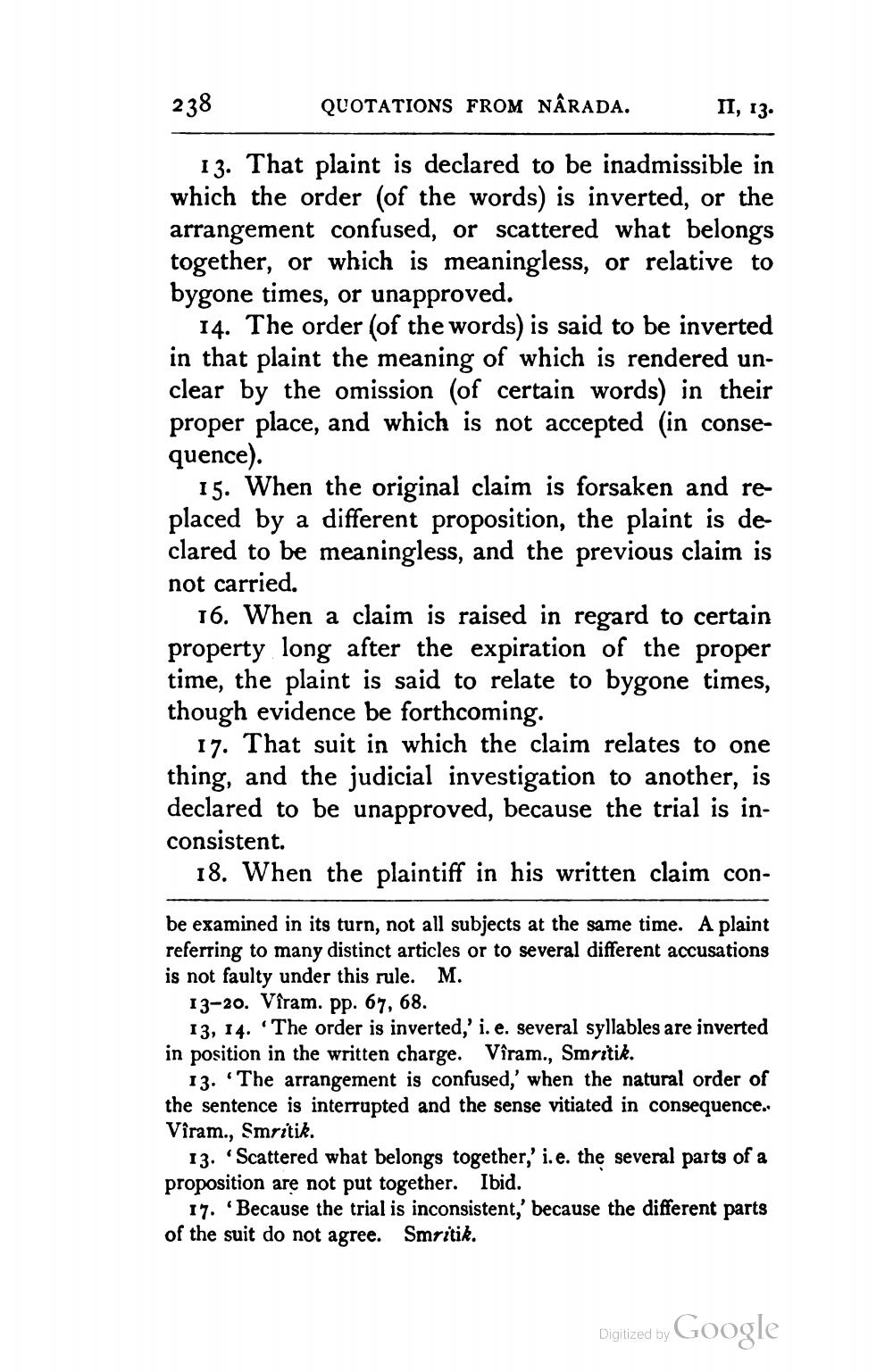________________
238
QUOTATIONS FROM NÂRADA.
II, 13.
13. That plaint is declared to be inadmissible in which the order of the words) is inverted, or the arrangement confused, or scattered what belongs together, or which is meaningless, or relative to bygone times, or unapproved.
14. The order (of the words) is said to be inverted in that plaint the meaning of which is rendered unclear by the omission (of certain words) in their proper place, and which is not accepted (in consequence).
15. When the original claim is forsaken and replaced by a different proposition, the plaint is declared to be meaningless, and the previous claim is not carried.
16. When a claim is raised in regard to certain property long after the expiration of the proper time, the plaint is said to relate to bygone times, though evidence be forthcoming.
17. That suit in which the claim relates to one thing, and the judicial investigation to another, is declared to be unapproved, because the trial is inconsistent.
18. When the plaintiff in his written claim con
be examined in its turn, not all subjects at the same time. A plaint referring to many distinct articles or to several different accusations is not faulty under this rule. M.
13-20. Vîram. pp. 67, 68.
13, 14. The order is inverted,' i. e. several syllables are inverted in position in the written charge. Vîram., Smritik.
13. "The arrangement is confused,' when the natural order of the sentence is interrupted and the sense vitiated in consequence. Vîram., Smritik.
13. 'Scattered what belongs together,' i.e. the several parts of a proposition are not put together. Ibid.
17. Because the trial is inconsistent,' because the different parts of the suit do not agree. Smritik.
Digitized by Google




